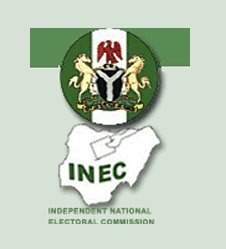It is settled that to make sense of the performance of a government or a system, a comparative analysis is necessary. This approach dates as far back as Aristotelean scholarship, and remains valid till date in the social sciences.
After a comparative study of over one hundred and fifty constitutions, Aristotle concluded that there were only three forms of government known to mankind, to wit: polity, monarchy and aristocracy. He however added that the corruption of polity brought about democracy, while the corruption of monarchy and aristocracy brought about tyranny and oligarchy respectively.
The weaknesses of democracy today and the relapse of all aristocracies into oligarchies, as well as the metamorphosis of monarchies into tyrannies, remain a tribute to the loftiness of Aristotle’s scholarly vision and testimony to the strength of the comparative approach.
Strictly speaking, it is within this context that all diachronic references to the past government of Rochas Okorocha should and must be made in order to understand how Imo has fared in the last two months under the watch of Emeka Ihedioha.
Any attempt at discussing the Ihedioha Administration as a discreet element that is divorced from the litany of malfeasance and improprieties that preceded it will ultimately produce unusable result. This is because the priorities of government are invariably conditioned by the realities at hand. Every leader grapples with the big question of the time!
Whatever development indices one chooses to adopt, Imo’s performance between 2011 and 2019 remains the worst since the state was created in 1976. Health prospects drastically dropped, as no single hospital in Imo was completed under the Ogboko-born politician. Imo had only two surgeons, no psychiatrist, one pathologist on the payroll of the State Government.
The 590 public secondary schools in the State had only 57 Mathematics teachers, 26 Physics teachers and 13 Literature in English teachers. All key courses in Imo’s tertiary institutions lost accreditation by the relevant rating boards.
Imo also occupied an indisputable top position in the rate of bad roads across the southern hemisphere of Nigeria.
In the other indices of social misery, Okorocha inescapably got a laurel of shame for the Eastern Heartland. For instance, youth unemployment rate in Imo reached all-time highest with 88% (about one million persons) of Imo’s youth population totally jobless. A UNDP report of 2018 specifically termed Owerri under Okorocha as the fastest-growing prostitution capital in Nigeria.
A financial snapshot of Imo would also reveal that Okorocha ran the worst form of bazaar economy ever known. To be clear, Imo had no tenders board. Award of contracts was simply an avenue for creating slush funds for money laundering. The overheads for running Okorocha’s bureaucracy stood at an average of N3.2 billion per month. This was what Okorocha spent monthly on lengthy convoys, champagnes, guesthouses, birthday parties and idle appointees!
Imo was plunged into a staggering debt profile of N200 billion. This debt slavery monthly chopped nearly N1 billion but never less than N800 million off Imo’s monthly allocations as Irrevocable Standard Payment Orders (ISPOs).
The destruction of livelihoods was elevated to the status of state policy, and sources of collective prosperity were either undermined or unabashedly bulldozed away. The marketplaces and landmark investments that had been revenue-spinning ventures in Imo were sent to their terminus, and Imo ranked 37th in the ease of doing business index in Nigeria.
The local government system was ruined and their allocations completely hijacked and a culture of transition in perpetuity was established.
This was the piteous state of the Imo bequeathed to Emeka Ihedioha.
Yet, if there is any area today in Imo State that has been so overwhelmingly rebuilt, sanitized, reinvigorated, and placed on the path of sustainable progress it is the local government system.
Governor Ihedioha evidently realizes that to engender grassroots development, expand the democratic space and spread democratic values in Imo State, a functional and vibrant local government system remains the most potent mechanism. This awareness patently accounted for his choice of Ikenga Mayor Eze to serve as his Special Assistant on Local Government and Chieftaincy Matters.
Leafing through his profile, Mayor Eze stands out as a sterling synthesis of passion, experience and cutting-edge intelligence requisite for a rebuilt and renascent Imo State. The appointment of the Ikenga Orlu into this very crucial role which impacts directly on the lives and wellbeing of the vast majority of Imo people who are at the grassroots attests eloquently that Governor Ihedioha had set out ab initio to make Imo truly work again. It is also a tribute to the ideals which Mayor Eze upholds, and a testament in the u fusion and refined values into the governance of Imo State.
Indeed, the accomplishments recorded by the Ihedioha Administration in the Local Government sector within the past two months speak volumes about what Imo will become in the next one year. It is instructive to note that today all Local Government Areas in Imo State today get full monthly allocations unlike in the past that nothing, literally nothing, went to them. As a corollary to this and to ensure that project funding guidelines are strictly adhered to, there is now an LGA Project Monitoring Bureau.
Most Local Governments have already taken off with projects after they indicated interests and received approvals. Today, there are projects like the rebuilding of primary schools and healthcare centers dotting the landscape of Imo. Provision of chairs and desks, rural electricity projects, boreholes and even local stadia are as well ongoing. In some areas like Ideato, there are even agricultural programs which are designed to make improved seedlings as well as other inputs available to farmers, even as extension services are ongoing for capacity building aimed at upskilling the local farmers.
Good governance has also been established in the Local Government system. Award of contracts and procurement processes in the Local Governments are now open and very transparent, and the Directors of Administration and General Services (DAGS), Treasurers and Heads of Personnel Management (HPM) of each Local Government take charge of the procurement processes through their Finance and General Purposes Committee, which is the highest decision making organ of the Local Government.
A local security architecture has been birthed with the Chairmen working in concert with traditional rulers, Town Unions, the police and other agencies to ensure adequate security. Regularly, security meetings are held to review the security situation in the locality and identify areas that require cooperative efforts to deal with.
To curb the menace of ghost workers and the attendant high wage bills, the Local Governments in Imo have engaged biometric experts to help using a clocking system, which electronically verifies the identities of the workers and consequently ascertains the actual staff strength through a clock-in platform in the morning and a clock-out mechanism in the evening.
In addition, 5% of the total allocations to the Local Governments now statutorily go to Conference of Traditional Rulers from which salaries and other improved welfare entitlements of traditional rulers are taken care of. This never happened in the past eight years in Imo State. It is today fully operational under the Ihedioha Administration.
We can go on and on. But the truth held to be self-evident in Imo is that the Local Government System has been rebuilt and made robustly functional to deliver value for the benefit of Ndimo and to the glory of God.










